Mozambique: Renamo promises to end its boycott to parliament - AIM
ACP “back on the map”, says Nyusi

Photo: Noticias
Mozambican President Filipe Nyusi believes that the ninth summit of heads of state and government of the African, Caribbean and Pacific group (ACP), held in Nairobi on Monday and Tuesday, has put the organisation “back on the international map”.
Speaking to the Mozambican reporters who covered the summit, he said that Mozambique’s participation was “positive”, and that “we, the member states, have once again put the ACP on the international map”.
The Nairobi summit took place under the motto: “A transformed ACP: Committed to Multilateralism”, which was broken down into three sub-themes – namely, cooperation for good governance, peace and security; the fight against violent terrorism and radicalism; and climate change, notably the governance of the oceans of small island states ( who account for much of the ACP’s membership).

Nyusi said the ACP heads of state and government had unanimously agreed on the need to defend and protect multilateralism.
The themes of the summit “clearly justify multilateralism”, he stressed. “You cannot talk about fighting terrorism and extremism or about climate change in just one country. This must be done as a bloc”.
Nyusi noted that Mozambique has contributed very little to pollution, but it is now suffering severely from the effects of climate change. This was shown by the two violent cyclones, Ida and Kenneth, which hit the country in March and April.
Cooperation among ACP states, he argued, would be fundamental for the socio-economic development of the member countries, which should work together to facilitate the movement of people, and not just of capital.
The summit approved a declaration entitled “Ungovu wa Umoja” (Swahili for “The Strength of Unity”), which the Mozambican Minister of Industry and Trade, Ragendra de Sousa, regarded as “a historic document”, which adapts the ACP to today’s reality.
“We have begun new negotiations between the ACP and the European Union”, he said. “But in this declaration we are stressing that, above all, we need to improve relations among ACP members”.
“At political level, the agreement is almost total”, said Sousa. “We have to improve our solidarity and get to know each other better”.
As for the economic sphere, far-reaching decisions had been taken. “We looked at the value chain for the products we most trade, such as sugar”, said the Minister. “We declared the need to comply with the laws of free trade. We are great producers of sugar, but we are faced with subsidies in the European Union, which makes things difficult for us. We shall work diligently to find solutions”.
He added that there was a unanimous appeal for a long term commitment with the European Union, and that the necessary alterations should have a certain predictability.
“And it was said that we must first count on ourselves, and afterwards look on the others as partners”, added Sousa.
He said that in the five year period that has just ended, Mozambique did everything to keep the promises the government made to the people, despite the suspension of financial support by the 14 donors that used to provide direct support to the Mozambican state budget.
The disbursement of aid was halted because of the scandal of Mozambique’s “hidden debts” – the over two billion dollar of loans obtained by three fraudulent, security-related companies from the banks Credit Suisse and VTB of Russia, on the basis of illicit loan guarantees given by the previous government, under the then president, Armando Guebuza.
Sousa boasted that the government “has completed the five year period without aid, but the country did not stop, wages were paid, and the economy grew”. (In fact, some sources of aid, such as the World Bank and China, never dried up).


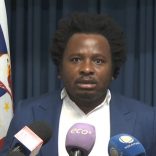
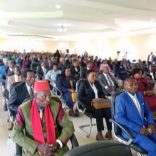
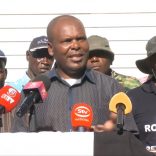
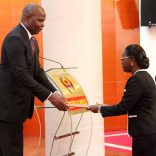
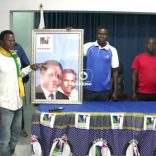
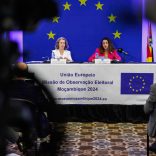



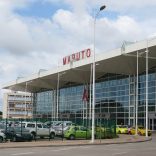
Leave a Reply
Be the First to Comment!
You must be logged in to post a comment.
You must be logged in to post a comment.